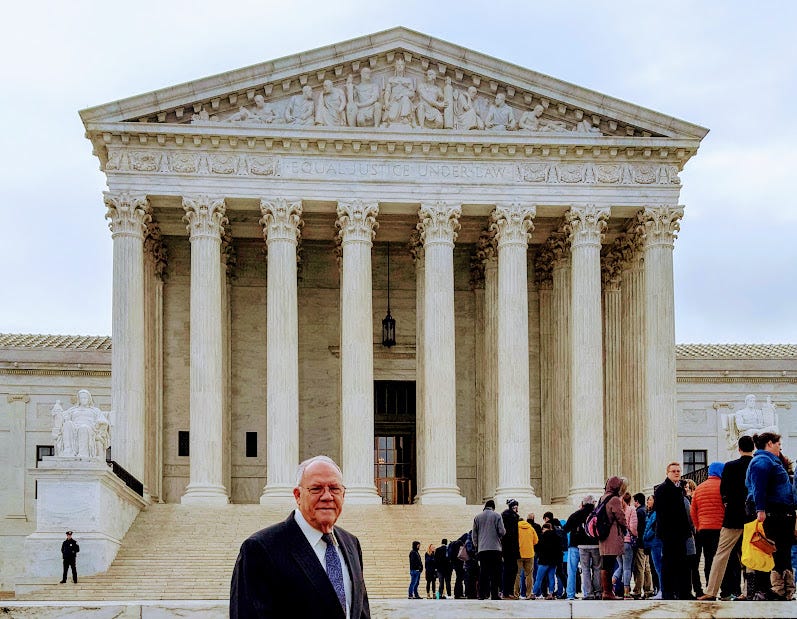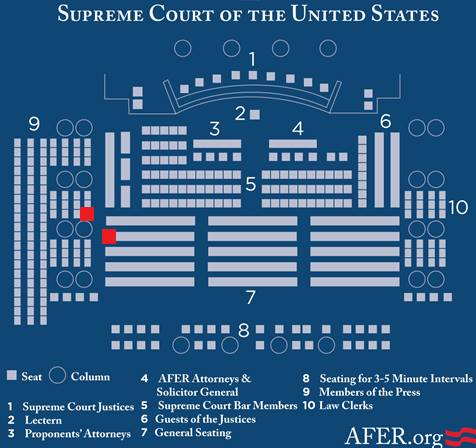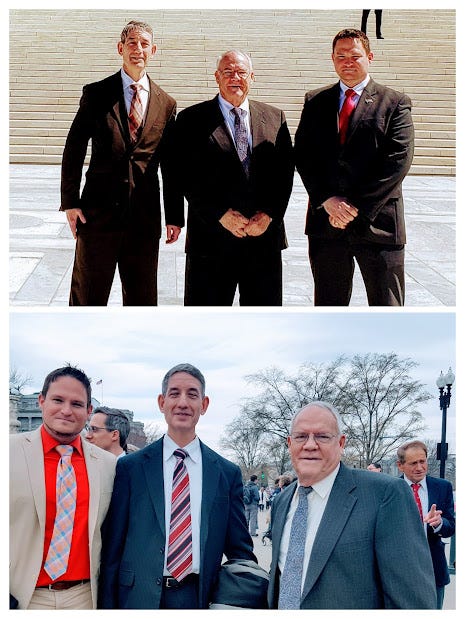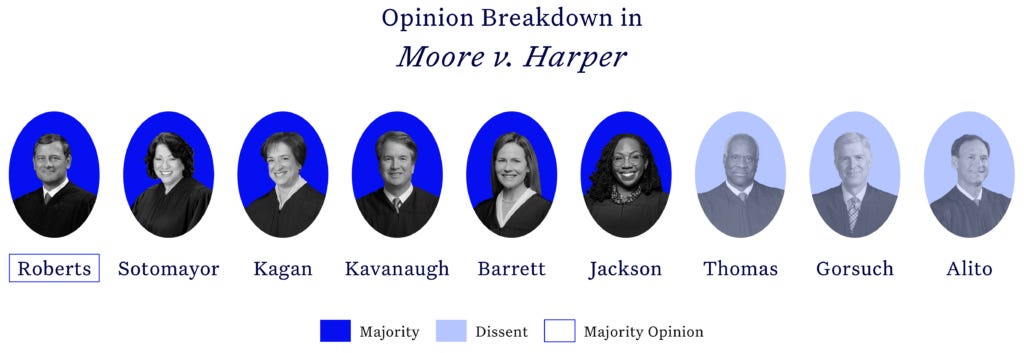Three Times at the SCOTUS-!!!
The “First Monday in October,” the traditional date for the beginning of the U.S. Supreme Court’s term, is today.
This newsletter aims to tell you that I was inside the Chamber of the United States Supreme Court (SCOTUS) three times in the past five years and "listened" to what the justices and attorneys talked about via a sign language interpreter for the deaf. Could you imagine that I did three times?
How to Get a Reserved Seat?
Let me explain. There are two separate lines for attending the oral arguments. One is for those who wish to attend an entire argument, and the other, a three-minute line, is for those who want to observe the Court in session only briefly (pictured.)
I did not want to stand in the public line because I should get a reserved seat for the following reasons:
My Gorrell v. O’Malley case is somewhat “indirectly” to the Case of Benisek v. Lamone since my Gorrell case was cited in the briefs of both parties of the Benisek case.
Formerly a resident of Maryland’s 6th Congressional District, I could be the 8th co-plaintiff of the Benisek case. Still, the Benisek plaintiffs’ attorney, Michael Kimberly, realized I had moved out of state [to Washington State], so it would not make sense to include an out-of-state in this lawsuit.
In response to my request (for a sign language interpreter) in the Supreme Court Submission on Visitor Services, the Marshal’s Office emailed me 15 minutes later and asked, “Do you have a seat reserved in the Courtroom for this oral argument?” I replied no.
A retired Office of the Solicitor General attorney told my high school friend, Murray Horwitz, that each arguing party usually gets about 4-6 reserved seats for guests.
4-6 reserved seats!!!!! Immediately, I emailed Michael Kimberly to see if he had any available seats. He replied, “I have an extremely limited number of seats and am afraid I cannot offer you one of them. I don't even have enough for our legal team and plaintiffs”.
I Googled and noticed that the Justices could have some reserved seats for their guests. I wrote a letter to Chief Justice Roberts and prayed hard.
Surprisingly, one week later, I received via email a letter from Pamela Talkan, Marshal of the Court, and it reads:
“Your March 6, 2018 letter to the Chief Justice has been referred to me for the response. As you are no doubt aware, there is a great deal of public interest in attending the oral argument in Benisek v. Lamone. However, I understand that you also have an interest in the case and have been unable to secure a reserved seat through arguing counsel. To allow for your attendance. I will reserve two of my seats for you and a sign language interpreter in the public section of the Courthouse for this case. Unfortunately, we cannot provide an interpreter for you; you should make arrangements to have someone accompany you who is capable of assisting you in that regard, and you will both be seated.”
The Marshal decided to seat me and the interpreter in the red seats on the diagram below, which were perpendicular to each other. The interpreter sat in the press section while my seat was in the general seating area.
If you want to attend the oral argument, please click “Courtroom access: The nuts and bolts of courtroom seating – and the lines for public access.”
March 28, 2018 - Case of Benisek v. Lamone
The case was formerly known as Shapiro v. McManus, which, in 2015, the Supreme Court clarified when United States District Court judges must refer cases to three-judge panels.
Background: This Benisek case was issued by the congressional map the Maryland legislature drew in 2011, a process that General Assembly Democrats and then-Gov. Martin O’Malley (D) aimed to boost their chances of winning races during the ensuing decade by moving Democratic voters from the safe 8th Congressional District into the 6th District, where the party struggled.
Watch the video, “Deaf political activist Howard Gorrell attends Supreme Court oral arguments on gerrymandering.”
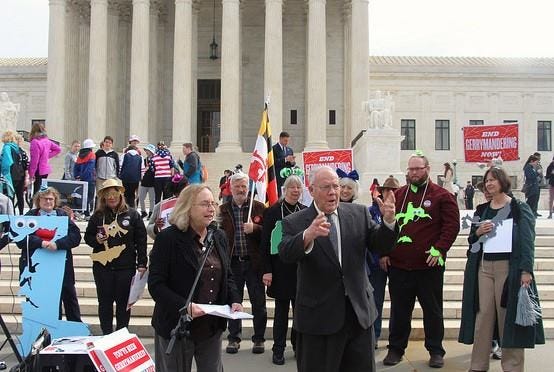
Outcome: The Court concluded that the District Court’s decision denying a preliminary injunction cannot be regarded as an abuse of discretion.
Top Photo: Pro se litigant Steve Shapiro, Howie, and Co-Petitioner Jerry DeWolf in 2019.
Bottom Photo: DeWolf, Shapiro, and Howie in 2018. The man behind me was Leading Petitioner O. Joe Benisek.
March 26, 2019 - Case of Lamone v. Benisek:
Surprisingly, the Marshal quickly gave me two reserved seats.
Background: On November 15, 2018, Maryland Administrator of Elections Linda Lamone appealed to the Supreme Court for the District’s ruling that it would appoint a three-person commission headed by a magistrate judge to redraw the congressional map if the state would not submit a valid plan by March 7, 2019.
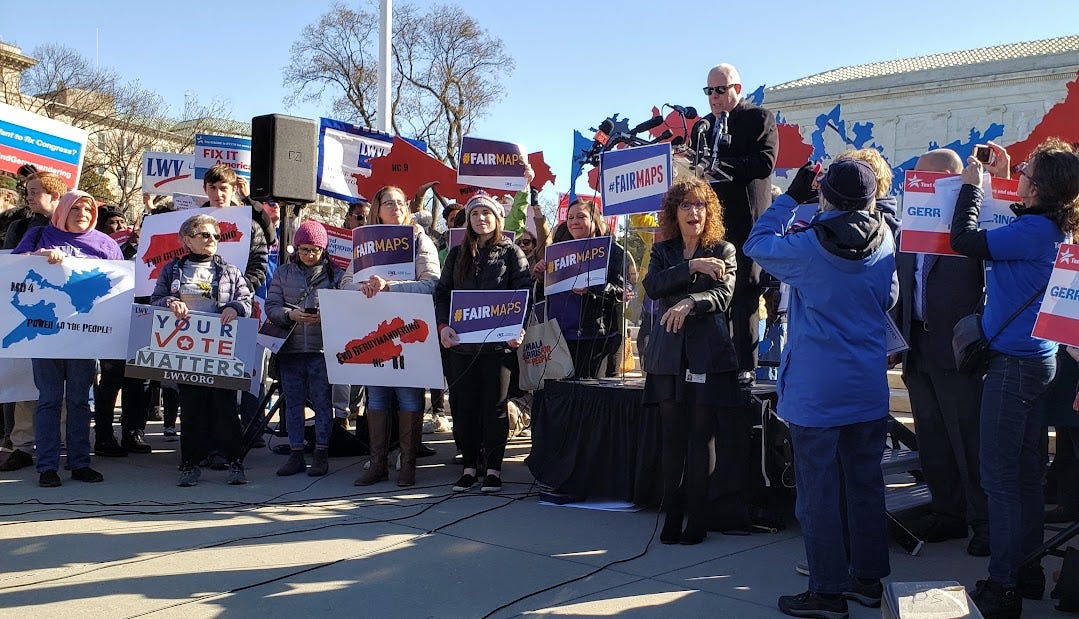
Outcome: Partisan gerrymandering presented a nonjusticiable political question that the Federal Court could not handle. Judgment: Vacated and remanded, 5-4.
December 7, 2022 - Case of Moore v. Harper:
Again, the Marshal quickly handed me two reserved seats for Interpreter Carrie Quigley and me.
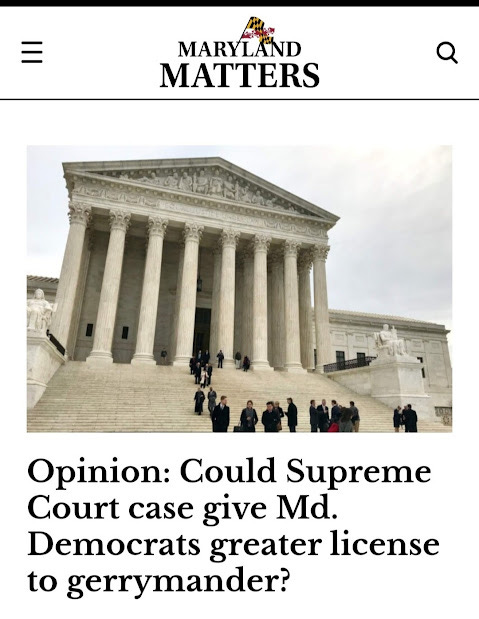
Outcome: In a 6–3 decision, the Court ruled that the Elections Clause did not give state legislatures complete control of federal elections, affirming the North Carolina Supreme Court's original decision and rejecting the Independent State Legislature.
“The court’s holding that partisan gerrymandering discriminates against citizens for their views and violates the First Amendment is a clear win for democracy,” said Mr. Kimberly after his major victory in a gerrymandering suit before a district court on November 7, 2018.




